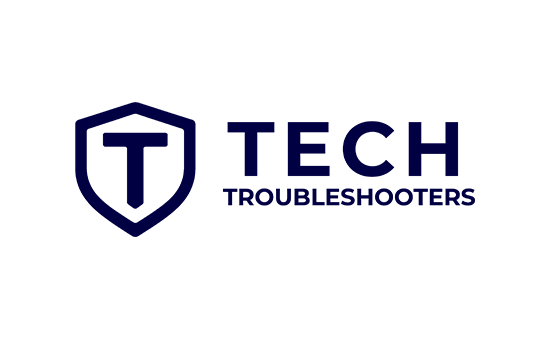The Parent Shield: Standing Up to Bullying with Calm Strength
When your child comes home quiet, withdrawn, or upset—and you know something isn’t right—your instincts kick in. But what do you do when you’re told to “report it” and then handed a dead-end process? What happens when no one explains how to keep track, what to expect, or how to hold anyone accountable?
That’s where this toolkit comes in.
You’re not just collecting evidence. You’re building clarity, momentum, and peace of mind. You’re giving your child what every parent wants to give: the safety of being taken seriously. This isn’t about overreacting. It’s about protecting your child from being overlooked in a system that often downplays their pain.
Why Documentation Matters
Without clear records, everything feels fuzzy—especially to those not directly involved. That’s why writing things down matters. Not just the facts, but the feelings. Not just what happened, but how it impacted your child. If it isn’t documented, it can be denied, forgotten, or minimized.
When you track bullying incidents in a consistent way, you’re not just proving that something is happening. You’re showing that it’s ongoing. That it’s serious. And that ignoring it is no longer an option.
You’re stepping into a proactive role—and that alone can help your child feel seen, heard, and supported.
At United Martial Arts & Fitness, we teach our students and families that power lies in preparation—and that clarity is protection. Our SAFE From Bullying program includes these exact tools because they work.
The Incident Log: Your Core Tool
Each time your child tells you about an incident, or you witness something troubling, log it. Be specific and brief. Stick to the facts: date, time, location, people involved, what was said or done, and how your child responded.
Even if it seems small, write it down. Bullying rarely starts with one big moment. It builds over time—and that pattern is what matters when you need to escalate. The incident log is the foundation of your action plan.
UMF families are taught to respond, not react. Documentation empowers you to advocate from a calm, informed place.
The Reflection Journal: What the Data Can’t Show
Some things can’t be captured in a bullet point.
Use the parent reflection log to capture your observations: changes in appetite, mood, sleep, confidence, or social behavior. Has your child stopped eating lunch? Are they refusing to go to school? Is there a change in the way they talk about themselves?
Your notes help tell the full story. They give context to the incident log and emotional weight to your concerns. They remind decision-makers that this isn’t just paperwork—it’s a real child, going through something serious.
This is the kind of emotional intelligence and awareness we foster at UMF—because strong families raise strong kids.
What to Say When You’re Tired of Repeating Yourself
When you’ve done everything “by the book” and you’re still being brushed off, it wears you down. You start to doubt yourself. You wonder if you’re being too pushy, too sensitive, or making it worse.
You’re not. You’re doing exactly what your child needs: showing up.
Use the email templates in this kit to maintain a calm, confident voice. They’re written to help you advocate without apologizing. You don’t need to be aggressive—but you do need to be clear, consistent, and firm.
If the school doesn’t respond to your initial message, follow up. Ask for a meeting. Keep track of who said what and when. Save every email, every reply—even the ones that say nothing.
At UMF, we teach students and parents alike: your voice matters—but how you use it makes all the difference.
When Silence Speaks Volumes: What to Keep
If the school isn’t taking action, your documentation becomes your greatest tool. That means keeping more than just a list of incidents. You need:
-
Screenshots of messages or social media posts
-
Notes from phone calls or meetings
-
Copies of every email you send and receive
-
Written records of promises, plans, or timelines
If your child shows you something on their phone, take a screenshot immediately. Save it. Print it. Add it to your folder. Technology moves fast, and things disappear.
Being prepared isn’t being paranoid—it’s being responsible. That’s a mindset we champion at UMF.
Knowing When to Escalate
There comes a point when waiting quietly is no longer helping. If weeks go by and your child is still being targeted, you have every right to move up the chain.
Escalation isn’t about making threats. It’s about making a case. And the more organized your records, the stronger that case becomes.
Ask for documentation from the school: meeting notes, intervention plans, follow-up strategies. Keep logging every new incident and every lack of response. If needed, bring your records to the school board, Department of Education, or a legal advocate.
At UMF, we tell parents this: Don’t compromise on quality when your child’s safety is at stake. Be respectful, but be firm. And never let silence be the final word.
Your Weekly Action Plan
You don’t have to fix everything overnight. But you do need a plan to keep momentum.
Each week, take a few minutes to answer these:
-
Who will I contact next? (Teacher, principal, counselor, agency)
-
What step will I take this week? (Send an email, call, log an incident)
-
What result do I expect? (Investigation, action, follow-up)
-
When will I follow up? (Set a date and stick to it)
-
What support do I need? (Friend, advisor, expert guidance)
Small steps create structure. And structure keeps you steady when things feel emotional or uncertain.
This kind of discipline—steady, goal-driven action—is at the heart of everything we teach at UMF.
What People Rarely Say About Bullies
The internet loves simple solutions: “Ignore it.” “Just walk away.” “Tell a teacher.”
But real-life bullying doesn’t follow neat scripts. It’s emotional. It’s complex. And it’s often invisible to those who aren’t looking closely.
-
Bullies can be well-liked, smart, and subtle.
-
Teachers might care, but be overwhelmed or poorly trained.
-
Avoidance can create more isolation, not less harm.
-
Adults get bullied too—in work, online, and even in families.
Bullying is about power, exclusion, and silence. That’s why emotional safety must be taught and modeled—from early childhood through adulthood.
At UMF, our students learn how to protect their space, stand with courage, and stay calm under pressure. We don’t just teach techniques—we teach life skills that turn fear into strength.
You Took the First Step. That Means Everything.
The moment you began tracking, observing, and advocating—you changed something. You stepped out of helplessness and into clarity.
This isn’t easy. But it’s worth it. Because your child is watching. They’re learning from you how to speak up, how to persist, and how to respond with courage.
Keep going. Keep documenting. Keep reaching out.
You don’t have to do this alone. And you shouldn’t have to fight this hard for your child to feel safe.
But if you do—you now have the tools, the voice, and the plan.
At United Martial Arts & Fitness, we stand with parents who stand up for their kids.
Because confidence is built. Courage is taught. And no child should feel powerless in a place that’s supposed to protect them.
We see you. We back you. Let’s keep our children safe—together.


You can trial one of our many classes, book tours today
The best way to see if any of our classes are for you, is to experience it first-hand. See our Academy, meet out instructors and emerge yourself in the UMF culture.
To register for your trial class simply check the class schedule, then click the link below to fill in the registration form.















